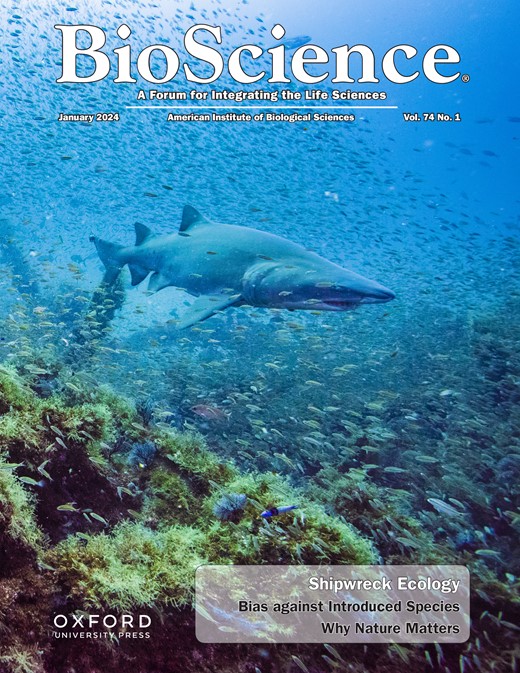Achieving success with RISE: A widely implementable, iterative, structured process for mastering interdisciplinary team science collaborations
IF 7.6
1区 生物学
Q1 BIOLOGY
引用次数: 0
Abstract
Scientific experts from different disciplines often struggle to mesh their specialized perspectives into the shared mindset that is needed to address difficult and persistent environmental, ecological, and societal problems. Many traditional graduate programs provide excellent research and technical skill training. However, these programs often do not teach a systematic way to learn team skills, nor do they offer a protocol for identifying and tackling increasingly integrated interdisciplinary (among disciplines) and transdisciplinary (among researchers and stakeholders) questions. As a result, professionals trained in traditional graduate programs (e.g., current graduate students and employed practitioners) may not have all of the collaborative skills needed to advance solutions to difficult scientific problems. In the present article, we illustrate a tractable, widely implementable structured process called RISE that accelerates the development of these missing skills. The RISE process (Route to Identifying, learning, and practicing interdisciplinary and transdisciplinary team Skills to address difficult Environmental problems) can be used by diverse teams as a tool for research, professional interactions, or training. RISE helps professionals with different expertise learn from each other by repeatedly asking team-developed questions that are tested using an interactive quantitative tool (e.g., agent-based models, machine learning, case studies) applied to a shared problem framework and data set. Outputs from the quantitative tool are then discussed and interpreted as a team, considering all team members’ perspectives, disciplines, and expertise. After this synthesis, RISE is repeated with new questions that the team jointly identified in earlier data interpretation discussions. As a result, individual perspectives, originally informed by disciplinary training, are complemented by a shared understanding of team function and elevated interdisciplinary knowledge.利用 RISE 取得成功:掌握跨学科团队科学合作的广泛实施、迭代、结构化流程
来自不同学科的科学专家往往难以将他们的专业视角融合到共同的思维模式中,而这正是解决困难而持久的环境、生态和社会问题所必需的。许多传统的研究生课程提供了出色的研究和技术技能培训。但是,这些课程往往没有教授学习团队技能的系统方法,也没有提供识别和解决日益综合的跨学科(学科之间)和跨学科(研究人员和利益相关者之间)问题的规程。因此,在传统研究生项目中培养出来的专业人员(如在校研究生和在职从业人员)可能并不具备推动解决困难科学问题所需的全部协作技能。在本文中,我们介绍了一种名为 "RISE "的可操作、可广泛实施的结构化流程,它可以加速培养这些缺失的技能。RISE 流程(识别、学习和实践跨学科和跨学科团队技能以解决困难环境问题的途径)可被不同团队用作研究、专业互动或培训的工具。RISE 可帮助具有不同专业知识的专业人员相互学习,方法是反复提出团队开发的问题,并使用交互式定量工具(如基于代理的模型、机器学习、案例研究)对这些问题进行测试,然后将这些问题应用于共享的问题框架和数据集。然后,考虑到团队所有成员的观点、学科和专业知识,对定量工具的输出结果进行团队讨论和解释。综合之后,重复 RISE,提出团队在之前的数据解读讨论中共同确定的新问题。因此,对团队功能的共同理解和跨学科知识的提升,补充了最初由学科培训提供的个人观点。
本文章由计算机程序翻译,如有差异,请以英文原文为准。
求助全文
约1分钟内获得全文
求助全文
来源期刊

BioScience
生物-生物学
CiteScore
14.10
自引率
2.00%
发文量
109
审稿时长
3 months
期刊介绍:
BioScience is a monthly journal that has been in publication since 1964. It provides readers with authoritative and current overviews of biological research. The journal is peer-reviewed and heavily cited, making it a reliable source for researchers, educators, and students. In addition to research articles, BioScience also covers topics such as biology education, public policy, history, and the fundamental principles of the biological sciences. This makes the content accessible to a wide range of readers. The journal includes professionally written feature articles that explore the latest advancements in biology. It also features discussions on professional issues, book reviews, news about the American Institute of Biological Sciences (AIBS), and columns on policy (Washington Watch) and education (Eye on Education).
 求助内容:
求助内容: 应助结果提醒方式:
应助结果提醒方式:


